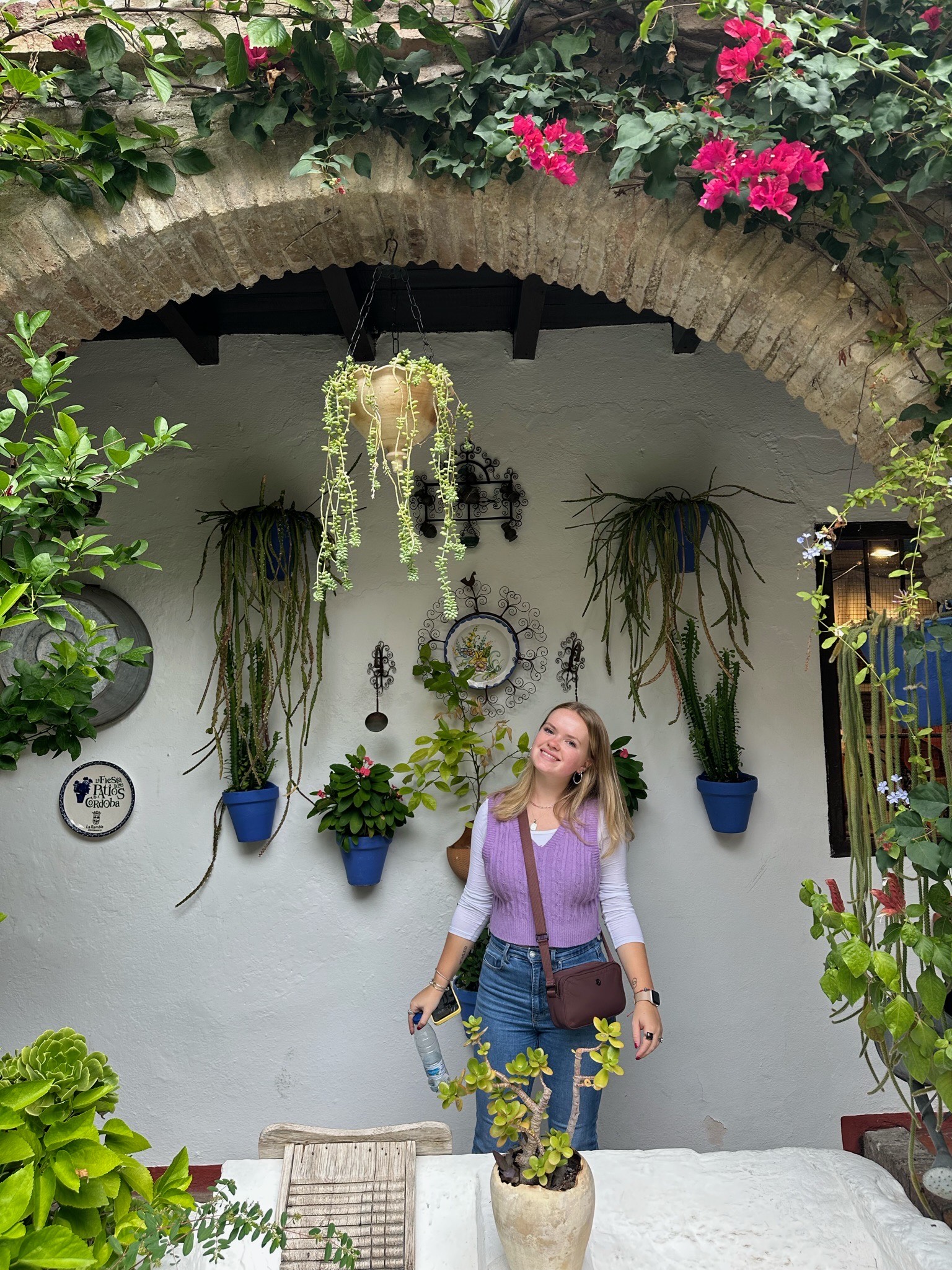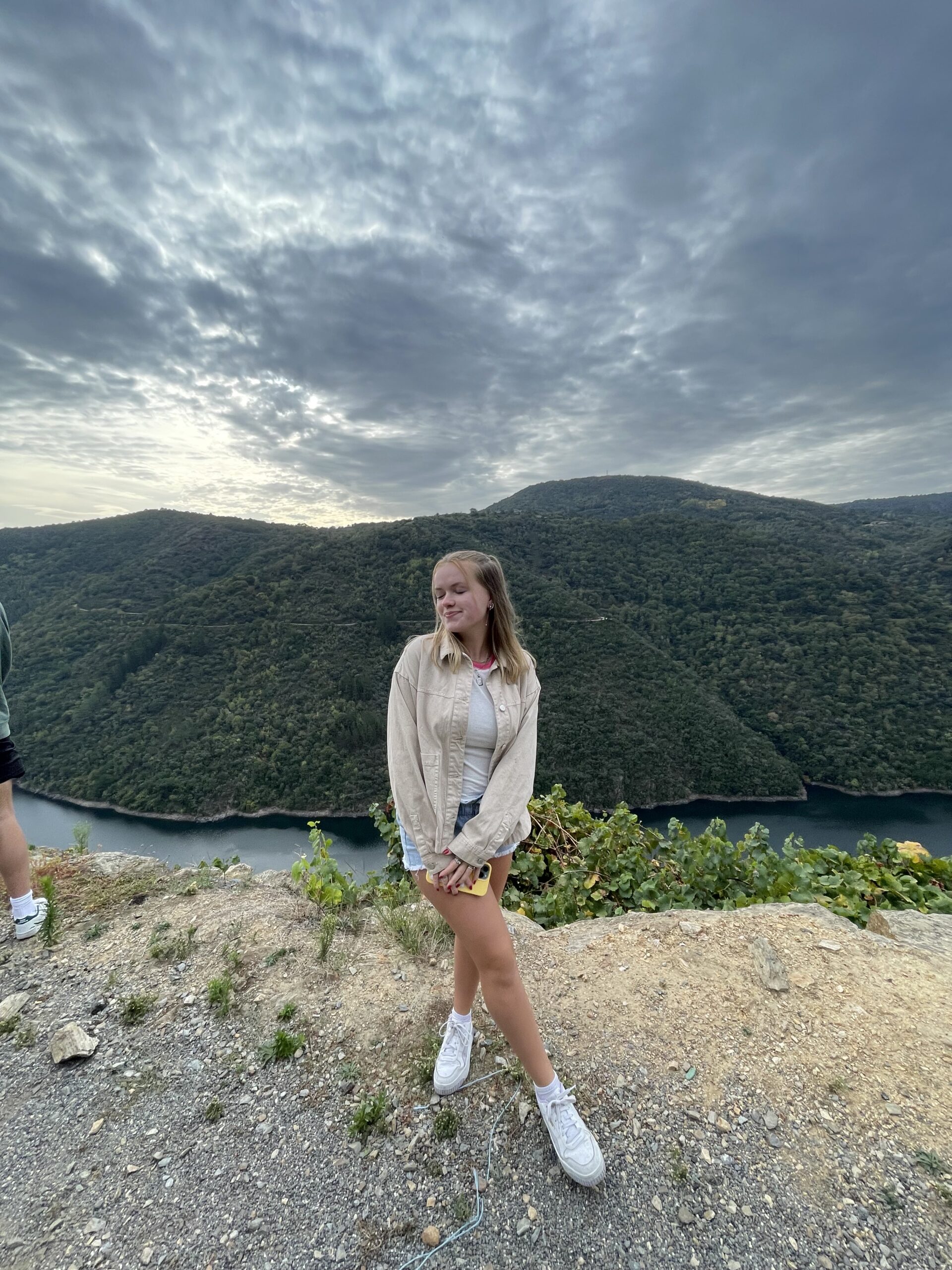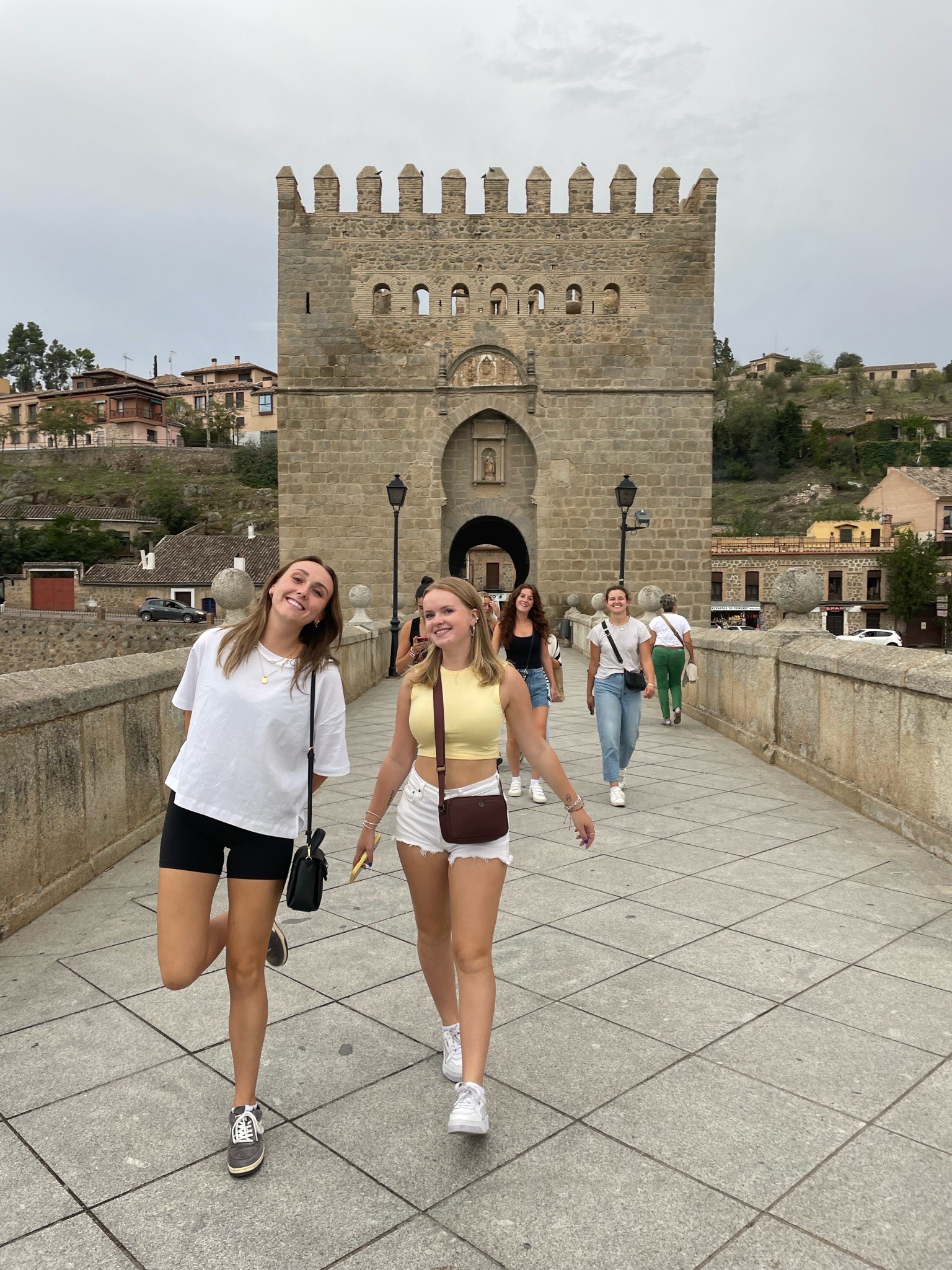When Words
Matter
By Rob Daniels
Meredith Prince (’25) had given no thought to a Spanish equivalent of the geographical-linguistic “soda” vs. “pop” divide when one of her professors, Dr. César Gutiérrez, got in touch in January 2024.
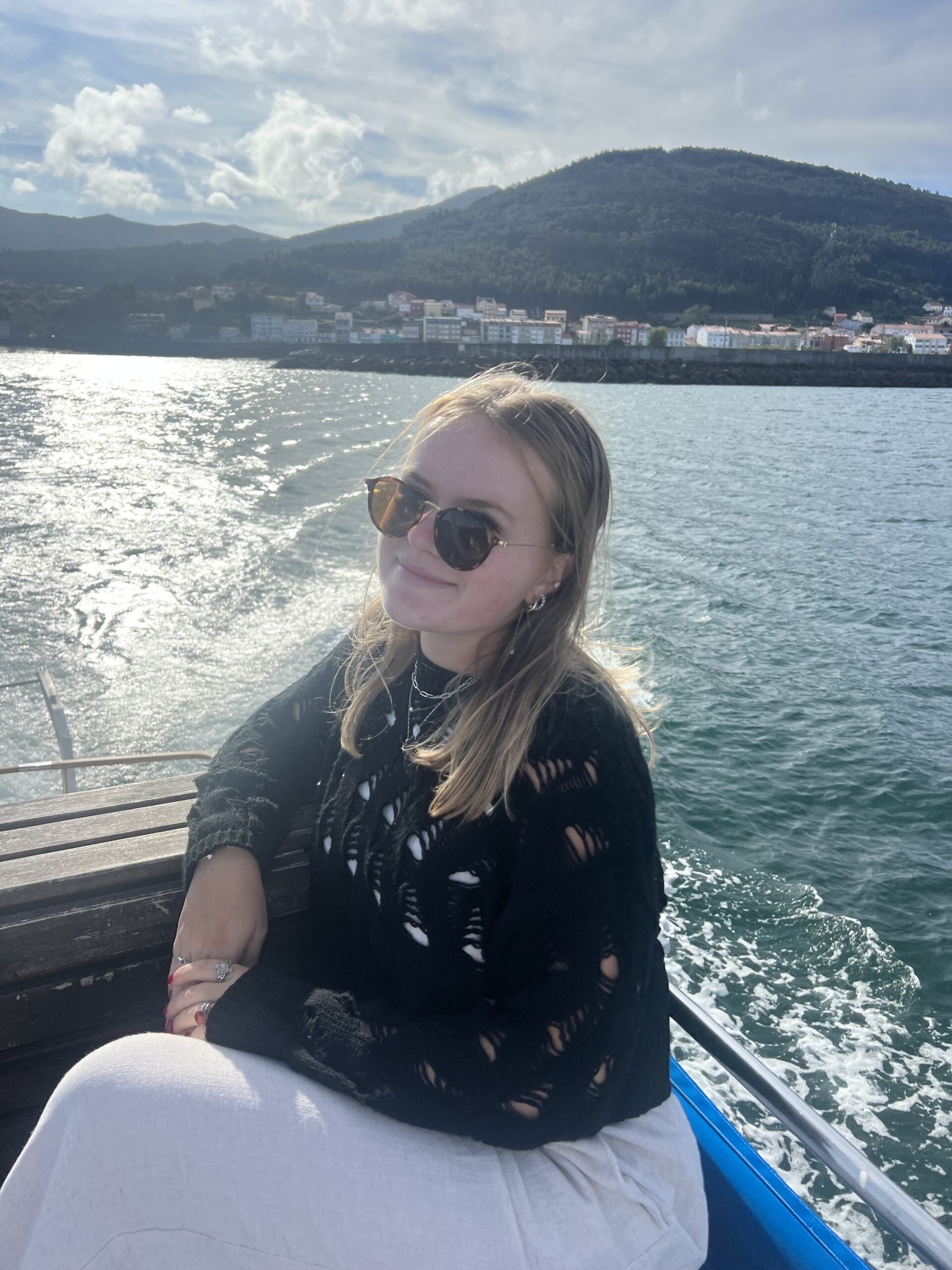
“He reached out and said, ‘Are you interested in working on a project with me?’ I had no idea what the project was going to be,” Prince recalled. “All I knew was that he had called me for a research opportunity. I felt honored.”
The result was a visually compelling map. Perhaps more importantly, it was the definitive Wake Forest educational experience.
Prince came from Wayland, Massachusetts, about 15 miles west of Boston, and with a good idea of what she wanted in college: small enough that faculty knew your name but large enough to offer academic diversity and the resources to explore it.
Spanish etymology, the study of word origins, wasn’t initially on Prince’s list of presumed research topics. But Gutiérrez’s class in Spanish pronunciation and dialects during her sophomore year got her attention. It was all about the details.
“It was so interesting to learn about the roots of words, the pronunciation of different letters. In Spanish, there are only five vowels. In English, there are effectively 12.”
Meredith Prince (’25)
In the fall of her junior year, she studied in Wake Forest’s sponsored program in Salamanca, Spain, a city of 140,000 people and 2,700 years of recorded history located two hours from Madrid and one hour from the border with Portugal. Seeing the culture and hearing the spoken word intensified her curiosity.
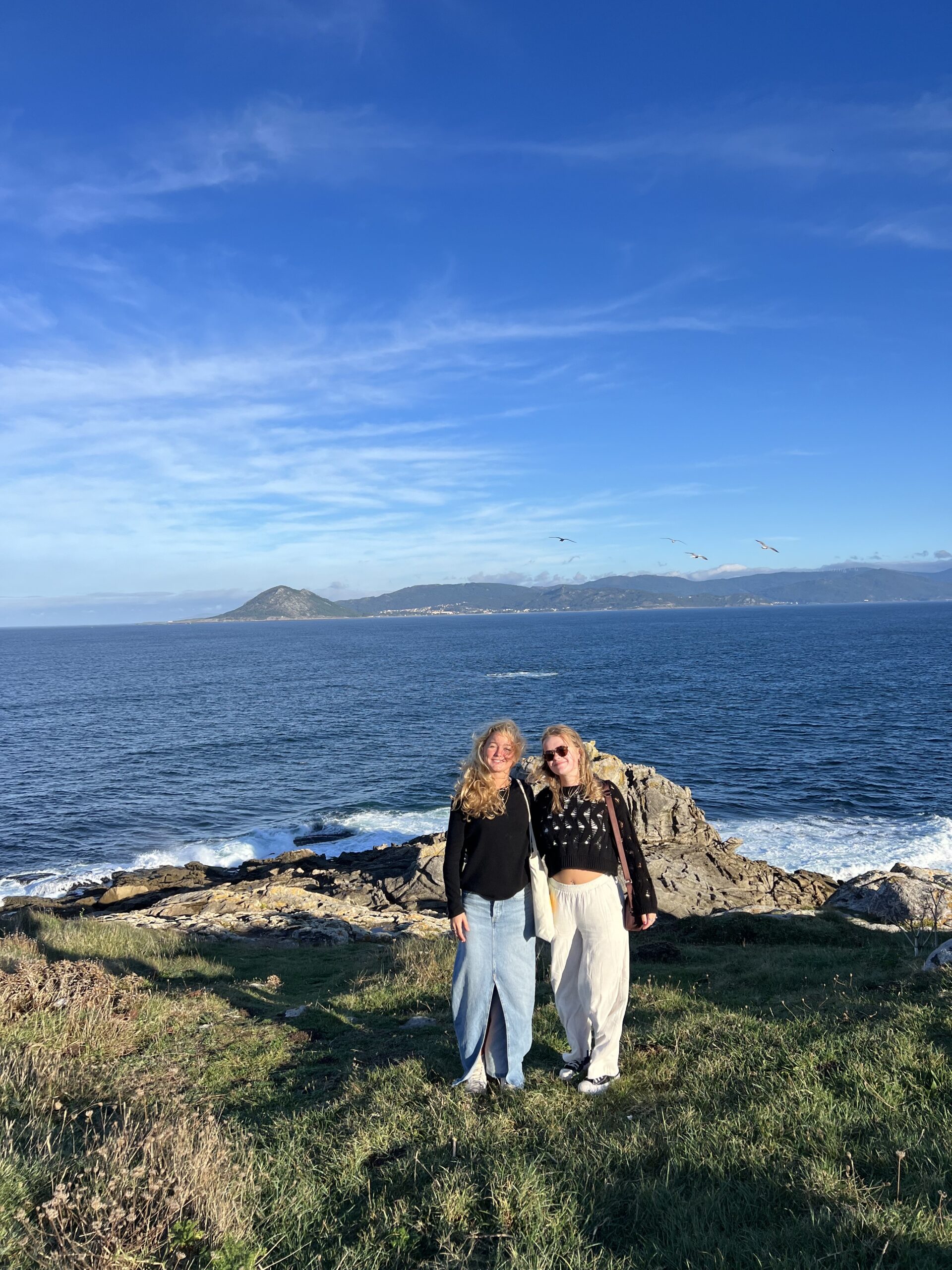
Prince was gratified to hear that Gutiérrez wanted to tap into her interest and intellect to help with his project, in which they would take a deep dive into one word: hollín (soot).
Over several years, Spaniards all over the country had been asked to identify the word they used to describe the residue found in chimneys. But nobody had geolocated the responses and marked them on a map in more than a century.
So, Gutiérrez and Prince got to work. Those who answered hollín would be placed on a map with a yellow dot. Residents preferring sarro or humo (ashes) would be marked in blue and other colors.
If you’re wondering about the larger point of this work, Prince has that covered, too.
“It matters because the roots of this word, hollín, are controversial,” Prince said. “Being able to graph them means we can track the direction and change and influence from history.”
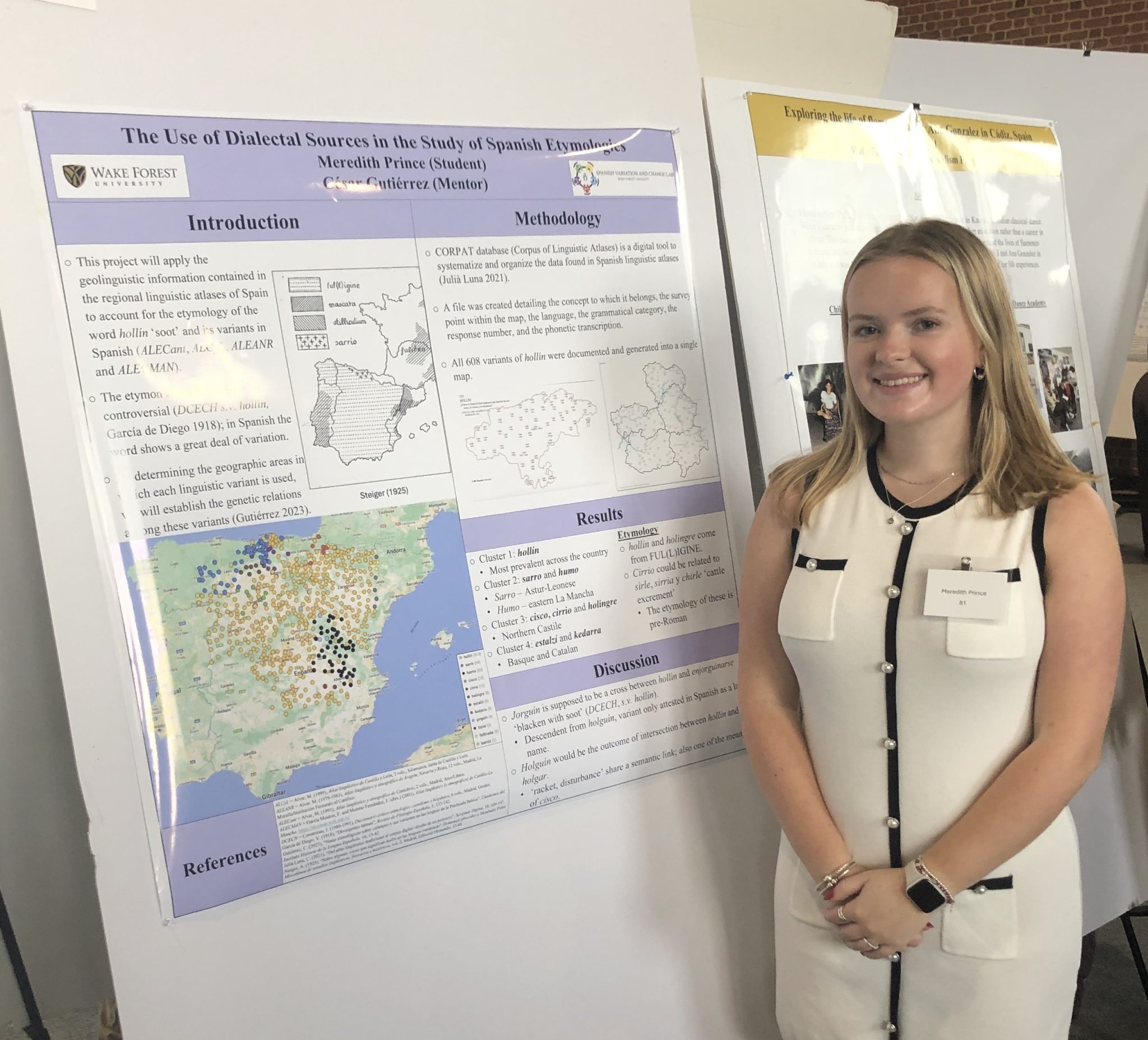
“Our main goal was not necessarily to make concrete conclusions about the etymology of the word. It was more about putting them all in one space. We’re still working to make this map complete.”
Beyond that, etymology and linguistics are helpful to the public. Law enforcement, for example, can locate people by their word choices or pronunciations. Students from outside of Spain – Madrid and Salamanca are two of Wake Forest’s most popular study-away destinations – can fit in their new surroundings with greater confidence if they know details like these. (A Spanish student, likewise, would want to know that the preferred term for soda in Cleveland is “pop” and that the pop-soda border is somewhere around Pittsburgh.)
The map came together gradually over the summer of 2024, becoming more and more visually exciting with each town or region filled in.
Even though the project wasn’t final, it was still impressive enough that Prince was invited to present it at Undergraduate Research Day, the celebration of collaboration convened over Family Weekend each fall.
Her participation was far from unique in a larger sense. STEM majors like biochemistry and engineering obviously lend themselves to research opportunities, but over the past decade, 44% of Undergraduate Research Day presenters have declared their primary major in social sciences or humanities disciplines.
And when she reflects on the experience, Prince knows the attention to detail that it required will benefit her in her planned tenure as a teacher in the Boston area and then in law school. But the most important thing might be how it started.
“I felt honored that he reached out to me and that of all the students he has had, he thought I would be a good match to work on this project with him,” Prince said. “It’s also nice to have my academic rigor recognized.”
Meredith Prince (’25) is majoring in Spanish and politics and international affairs. The Wayland, Mass., native is the recipient of the Guy and Clara Carswell Scholarship, awarded to students who possess outstanding qualities of intellect and leadership.

